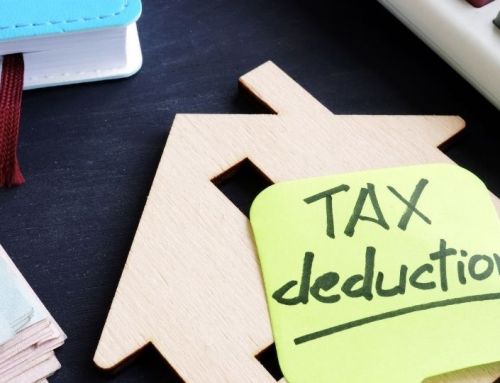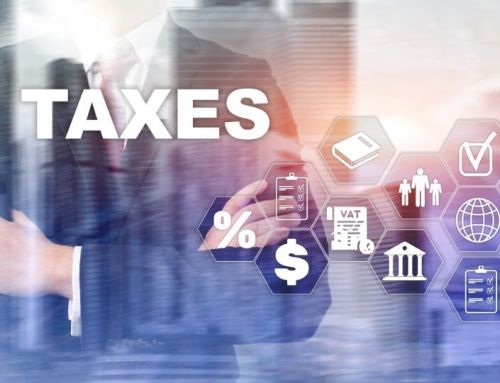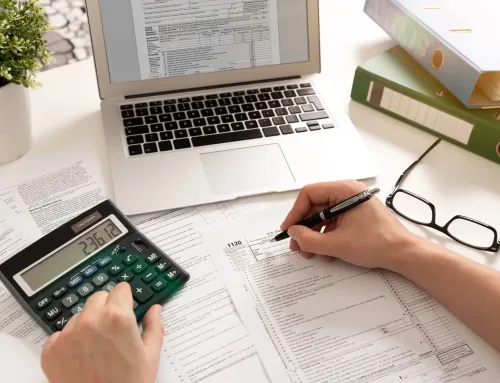Engaging a personal tax accountant typically starts from understanding what services you need. In the UK, fees vary depending on complexity—from a straightforward self-assessment to managing rental income, investments, capital gains, foreign income or trust filings. Here’s a breakdown:
- Simple Self‑Assessment
- Straightforward tax returns with no rental income, few expenses, and salaried income only.
- Expected cost: £150–£300.
- Moderately Complex Returns
- Includes rental income, small business income, investment/dividend income.
- Expected cost: £300–£600, occasionally rising to £800 depending on depth.
- High‑Complexity Cases
- Involves self‑employment, director’s returns, capital gains, foreign income, trust or estate accounts.
- Fees often start from £600–£1,200+, and could escalate considerably depending on hourly billing or add‑on services.
- Hourly Rates & National Averages
- Firms and sole practitioners typically charge between £50 and £150 per hour, depending on experience, credentials (e.g. Chartered status), and region.
What Affects the Cost of a Personal Tax Accountant?
- Experience & Credentials: Chartered Accountants (ICAEW, ACCA) command higher fees.
- Location: London and South East accountants typically charge more than those in northern counties—regional variation can be 20–30%.
- Complexity & Volume: Multiple income streams, rentals, stop‑start years, capital events, foreign reporting obligations (e.g. FATCA, FBAR for US nationals) increase billable hours.
- Technology & Software: Modern, cloud‑based practices may streamline submissions; firms using older systems might bill more time for manual work.
- Turnaround Time: Rush jobs during peak deadlines (e.g. early January–October self‑assessment window) may attract premium pricing.
Fee Expectations by Case Type
| Case Type | Fee Range (GBP) | Typical Notes |
| Salaried income only | £150–£300 | Simple returns, single income source |
| Rental property / dividends | £300–£600 | Additional schedules and expense reviews |
| Self-employment/directorship | £500–£1,000+ | Includes accounts preparation, CIS & payroll filings |
| Capital gains/foreign income | £600–£1,200+ | May involve specialist tax treatment and international tax compliance |
Want to understand which fee category suits your circumstances best? Request a personalised estimate today.
Regional Differences in the Cost of Hiring a Personal Tax Accountant
Location plays a big role in how much you’ll pay for a personal tax accountant in the UK. While average fees follow a national trend, you can expect noticeable variations across regions:
London & South East
- Typically 20–30% higher than the UK average.
- £400–£600 for simple to moderate returns is common.
- Premium firms often start at £1,000+ for complex returns.
Midlands & North
- More competitive pricing due to lower overheads.
- Simple returns from £150–£250.
- Moderate returns £300–£500.
Wales, Scotland & Northern Ireland
- Generally aligned with Midlands & North pricing.
- Some rural or smaller markets offer rates as low as £100–£200 for simple returns.
Urban vs. Rural
- Larger towns and cities tend to have higher fees due to increased demand and operational costs.
- Small practices in rural areas often provide value-focused services but may lack specialist capabilities.
Need help finding a personal tax accountant in your area? We can match you with local professionals—just get in touch.
Additional Services That Can Affect the Cost of a Personal Tax Accountant
When hiring a personal tax accountant, it’s important to understand that the base fee usually covers just your tax return. Many accountants offer additional services that can add value—but also increase your bill. Here are common add-ons:
Tax Planning & Advisory
- What it includes: Pre-year-end tax planning, optimising allowances (ISAs, pensions), gifting strategies, capital gains planning.
- Typical cost: £200–£500+ depending on scope and complexity.
Bookkeeping Services
- What it includes: Day-to-day records management, bank reconciliation, expense tracking—vital for self-employed clients.
- Typical cost: £30–£75 per hour or monthly retainers from £100–£300.
Capital Gains Tax (CGT) Calculations
- What it includes: Advice on timing asset disposals, calculation of tax liabilities, relief claims (e.g. PPR, Business Asset Disposal Relief).
- Typical cost: £300–£600 per property or asset class.
Rental Income Accounts Preparation
- What it includes: Review of rental statements, allowable expenses, mortgage interest relief.
- Typical cost: £200–£500.
Foreign Income & Domicile Advice
- What it includes: Reporting of overseas earnings, remittance basis claims, double taxation relief.
- Typical cost: £400–£1,000+ depending on complexity.
Trust & Estate Planning
- What it includes: Specialist advice on inheritance tax, discretionary trusts, life interest trusts, and associated filings.
- Typical cost: £800–£2,000+.
Unsure which extra services you need? Speak to us for a personalised recommendations checklist.
How to Choose the Right Personal Tax Accountant
Finding the right personal tax accountant isn’t just about cost—it’s about value, expertise, and trust. Here’s how to choose wisely:
1. Qualifications & Professional Bodies
- Look for Chartered status (ICAEW, ACCA) or membership of tax-focused bodies (CIOT).
- These credentials ensure professional standards, continuing education, and compliance with ethical codes.
2. Relevant Experience
- Choose an accountant with a track record in your situation—whether it’s property income, self-employment, capital gains, foreign assets or inheritance tax.
- Ask: “What percentage of your clients have similar needs to mine?”
3. Transparent Fees
- Reputable accountants provide a clear fee structure upfront.
- Be cautious of vague “starting from” rates or unclear hourly billing without estimates.
4. Personal Service vs. Big Firms
- Sole practitioners or small firms offer personal relationships and hands-on advice.
- Larger firms may suit clients with very complex or international affairs, but can be less personal and more expensive.
5. Communication & Accessibility
- Good accountants are responsive, happy to explain tax issues in plain English, and reachable year-round—not just at filing time.
6. Technology & Systems
- Check if they use modern cloud-based tools (e.g. Xero, FreeAgent) which can save time and reduce costs.
Want help selecting the best personal tax accountant for your needs? We can introduce you to trusted professionals—start here.
Ways to Save Money When Hiring a Personal Tax Accountant
Hiring a personal tax accountant is an investment, but there are smart ways to reduce the overall cost while still getting high-quality advice. Here’s how:
1. Be Organised
- Keep your financial records, receipts, and documents well organised.
- The more prepared you are, the fewer billable hours your accountant will need to spend sorting your information.
2. Provide Digital Records
- Submit documents electronically, preferably in spreadsheet or software formats.
- Avoid handing over boxes of paper—manual data entry adds to your costs.
3. Choose the Right Level of Service
- You might not need premium services if your tax affairs are simple.
- For very basic self-assessments, some firms offer fixed-fee packages that are more cost-effective than full hourly rates.
4. Avoid Last-Minute Filing
- Late submissions mean premium rush charges.
- Plan ahead and engage your accountant well before the self-assessment deadline (31 January for individuals).
5. Ask for a Fixed Fee
- Many accountants will offer a flat rate if you request it—especially if your tax situation is straightforward.
- Fixed fees provide certainty and help with budgeting.
6. Bundle Services
- If you need multiple services (e.g. tax return plus CGT advice), bundling them with the same firm can often secure a discount.
Need tips on preparing your tax documents for your accountant? Download our free preparation checklist today.

Is It Worth Paying for a Personal Tax Accountant?
Many wonder: is hiring a personal tax accountant really worth the cost or Can an Accountant Help Maximise My Tax Efficiency? For most, the answer is yes—here’s why:
1. Maximise Tax Savings
- A good accountant identifies allowances, deductions, and credits you may not know about.
- They can often save you more than their fee by reducing your tax bill legitimately.
2. Avoid Penalties
- Filing late or incorrectly can lead to significant HMRC penalties and interest.
- An accountant ensures accuracy and timely submission.
3. Handle Complex Situations
- If you have rental income, foreign earnings, capital gains, or are self-employed, DIY filing can be risky.
- Professional expertise ensures complex issues are handled correctly.
4. Peace of Mind
- Tax legislation changes frequently and is full of technical nuances.
- Paying an expert means you avoid stress and the risk of costly mistakes.
5. Free Up Your Time
- Preparing and filing tax returns is time-consuming—your time could be better spent elsewhere.
- Outsourcing lets you focus on your business, career, or family.
6. Long-Term Tax Planning
- Accountants do more than annual filing—they provide proactive advice for the years ahead.
- This can help you reduce lifetime tax liability through strategic planning.
CTA: Want to know if hiring a personal tax accountant could save you more than the fee? Book a free consultation now.
Summary & Final Thoughts: Understanding Personal Tax Accountant Costs
Hiring a personal tax accountant in the UK is not a one-size-fits-all expense. The cost depends on:
- The complexity of your tax affairs
- The experience and qualifications of your accountant
- Your location and regional fee norms
- Any additional services you require
- How well organised your financial records are
Typical Ranges Recap:
| Service Type | Fee Range (GBP) |
| Simple self-assessment | £150–£300 |
| Rental income / moderate complexity | £300–£600 |
| Complex returns (CGT, foreign income, trusts) | £600–£1,200+ |
| Tax planning and advisory | £200–£500+ |
Ultimately, a skilled personal tax accountant doesn’t just process your return—they add value by:
- Maximising allowable deductions and tax savings
- Helping you stay compliant with changing HMRC rules
- Providing peace of mind that your taxes are done correctly
- Offering strategic advice that improves your long-term finances
If you choose wisely, their fee can be an excellent investment—not a cost.
Ready to hire the right personal tax accountant for your needs? Contact The Taxcom today for a personalised quote and expert guidance.
Frequently Asked Questions
What does a personal tax accountant do?
A personal tax accountant helps individuals manage their tax obligations. Their services typically include preparing and filing tax returns, advising on tax-saving opportunities, ensuring compliance with HMRC rules, and providing guidance on complex tax issues such as capital gains, foreign income, inheritance tax, and trusts.
How much should I expect to pay for a personal tax accountant in the UK?
The cost of hiring a personal tax accountant in the UK varies depending on the complexity of your tax affairs. Simple tax returns may cost between £150 and £300. If you have guaranteed rental income, self-employment income, or capital gains, fees typically range from £300 to £1,200 or more for complex situations. It’s best to request a clear fee estimate from your chosen personal tax accountant.
Do I really need a personal tax accountant?
If your tax affairs are straightforward (such as salaried income with no other sources), you may be able to file your own return. However, if you have multiple income streams, rental properties, foreign income, or capital gains, a personal tax accountant can help ensure compliance and reduce your tax liability. Their expertise can often save you money and time in the long run.
Can a personal tax accountant save me money?
Yes, a good personal tax accountant can save you money by identifying deductions and tax reliefs you might otherwise miss. They also ensure you avoid HMRC penalties and interest, which can be costly if you make filing errors. Many clients find the savings and peace of mind more than cover the accountant’s fees.
How do I choose the best personal tax accountant?
Look for a personal tax accountant with strong qualifications (such as ACA, ACCA, or CIOT membership), relevant experience in your type of tax situation, and transparent fees. A good personal rapport and clear communication are also essential. Reading reviews and getting referrals can help you choose the right personal tax accountant.
When should I hire a personal tax accountant?
It’s best to engage a personal tax accountant as early as possible, especially if your tax situation is complex or if you want tax planning advice. Waiting until just before the self-assessment deadline may limit your options and could incur rush fees.
Will my personal tax accountant handle HMRC for me?
Yes, a personal tax accountant can deal directly with HMRC on your behalf, if you authorise them as your tax agent. They will handle correspondence, file your return, and manage any queries or disputes with HMRC, giving you peace of mind.
Is it better to pay a fixed fee or hourly for a personal tax accountant?
This depends on your situation. Many clients prefer a fixed fee for a personal tax accountant because it offers predictability. If your affairs are very complex or subject to change, hourly billing may be more flexible. A good personal tax accountant will explain both options clearly.
Can a personal tax accountant help with foreign income?
Absolutely. A personal tax accountant experienced in international tax can help you correctly report foreign income and claim any applicable tax reliefs or credits. This is especially valuable for expats, non-doms, and those with offshore investments.
What is the difference between a personal tax accountant and a bookkeeper?
A personal tax accountant is trained to manage your tax affairs and provide strategic advice, while a bookkeeper focuses on day-to-day financial record-keeping. Many accountants also offer bookkeeping services, but a personal tax accountant brings deeper tax knowledge and HMRC compliance expertise.
Ready to take the stress out of tax season?
Speak to an expert personal tax accountant at The Taxcom today. Get a personalised quote and discover how we can help you save time, reduce tax liability, and stay fully compliant with HMRC.
Contact us Today.
Table of Content

Our Content Writing Team boasts a proven track record of crafting engaging and impactful content that drives success and achieves results.














